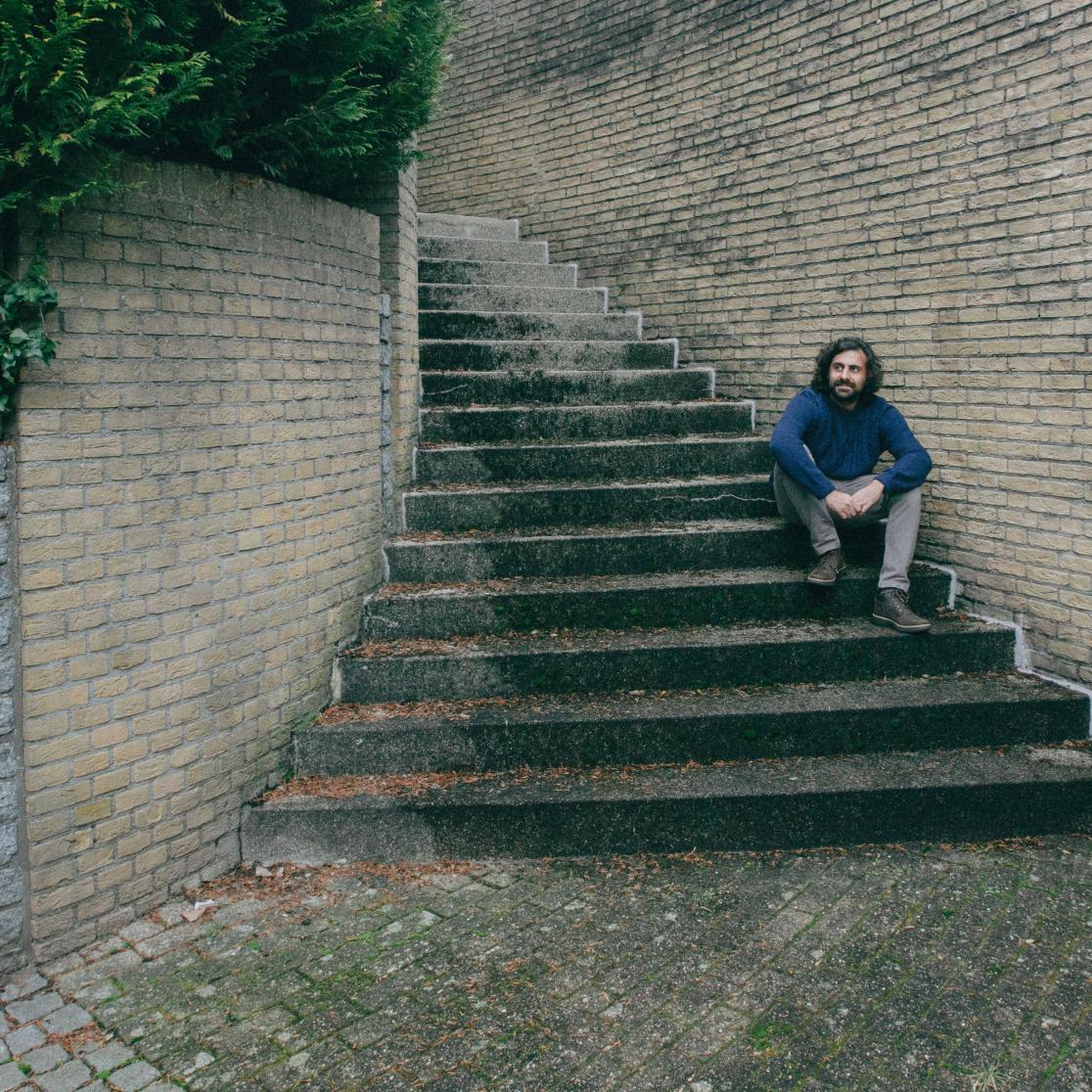Understanding urban food insecurity
His research lies at the intersection of sustainability, socioeconomics and politics. Assistant professor Filippo Oncini, from the School of Business and Economics, studies food charities and develops practical instruments to analyse urban poverty and food support. He has been awarded an ERC grant to conduct urban ethnographic research in Palermo, Kyoto and Rotterdam.
For his PhD, Filippo Oncini studied food inequality in Italy, focusing on how families obtain and consume food depending on their social class. “I looked at the role of school meals in improving children’s eating habits, but also at how their different social origins influence their knowledge of and relationship with food.” He conducted fieldwork in a school in an underprivileged neighbourhood of Palermo, Sicily. “I realised that, for many children, this was their only proper meal of the day. So, I decided to focus on urban poverty—but still with food at the heart of it.”
Poverty and food banks on the rise
Oncini received a Marie Curie Fellowship and moved to Manchester to study how access to food support impacts the lives of the urban poor. The UK, he says, has one of the most advanced systems of food-support provision, combining food donations with the redistribution of food surplus. “The Trussell Trust, for example, developed the first network of food banks and became incredibly successful. It’s a traditional model where private citizens donate food.”
In 2006, the Trussell Trust distributed fewer than 3,000 emergency food parcels; last year, this figure topped 3.1 million. This dramatic increase reflects not only a decade of austerity politics, but also a growing emphasis on sustainability. “Twenty years ago, people primarily bought and donated new food,” Oncini explains. “Since then, the focus has shifted to recovering food waste and channelling it back into the system, creating a more sustainable model of food provision.”
From Manchester to Kyoto
Next, Oncini secured a fellowship from the Japan Society for the Promotion of Science (JSPS) for a comparative study of charitable food-provision systems in the UK and Japan. While there are similarities, the Japanese system involves more informal actors. Many small, independent groups organise monthly distributions of bento boxes or food parcels, often outside the scope of formal food-safety regulations. “These grassroots initiatives are typically run by local communities or neighbourhood associations, reflecting a decentralised approach to addressing food insecurity.”
Another feature of the Japanese system is the prominence of kodomo shokudou, or children’s cafeterias. Initially designed as safe spaces for children, their role has expanded to address food insecurity. “They now distribute bento boxes and food parcels to support families in need.”
Japan faces unique challenges in this area. “Poverty remains a taboo topic, often discussed only in private,” Oncini explains. The sector relies on neighbourhood associations that operate discreetly. This helps to mitigate the shame of receiving charity, while also sparing the public from confronting these realities directly.
As food insecurity continues to grow, many Japanese now rely on multiple food providers to meet their basic needs. “You only receive so much food at a time, so people plan their lives around the schedules of different food charities. This adds significant stress and fatigue to their daily routines.”

Win-win-ish
Reducing food waste while providing for the hungry might seem like a win-win situation. “But you’re not really solving either problem,” Oncini says. “It’s a buffer against hunger, not food security. And it doesn’t disincentivise overproduction either.” In his view, the idea that the problems can cancel each other out is debatable.
Moreover, the shift from cash to food transfers restricts people’s autonomy over their time and food choices. That charitable food provision ramps up as the state reduces welfare spending is politically convenient. “Governments save money, and corporations can brand themselves as sustainable and socially responsible. But you end up perpetuating the very system that produces poverty in the first place.” Framing the redistribution of surplus food as a socially responsible solution masks the deeper issues of structural inequality and overproduction.
Comparing systems
Oncini will use the ERC grant to develop a theoretical and methodological framework that integrates quantitative and qualitative methods and can be applied in various countries. The aim is to create tools to better understand how charitable food provision has become so important in many upper- and middle-income countries. At the same time, he will explore the impact of such food provision on the survival strategies of those who rely on it.
A key component of the project is event sequence analysis, a method used by several researchers at the Maastricht Sustainability Institute, where Oncini is based. “This approach abstracts the roles of actors and events to a level that allows for meaningful comparisons across different contexts. It provides a common language and shared categories for studying systems in diverse countries.”

Understanding poverty
Oncini hopes to bring greater scholarly attention to the issue of charitable food provision. “We need to make the system more resilient and resistant to shocks,” he says. He also pushes back against oversimplifications of poverty, which he calls “incredibly frustrating.”
“Engaging with statistics on poverty is fundamental, but it’s not enough,” he says. “Interacting with the people affected is something entirely different. You come to understand the immense burden it puts on them and the suffering it causes. My research won’t solve the problem, but I hope it contributes to a deeper understanding of the situation.”
Text Florian Raith
Photography Sem Shayne
Also read
-
Andrés Caceres Solari on No room for Human Rights in Gaza and Ukraine: How the Law Legitimizes Urban Devastation
Pick Our Brains Session with Andres Caceres Solari

-
AMIBM hosts the final Realise-Bio conference
The Aachen Maastricht Institute of Biobased Materials (AMIBM) hosted last week the third and final Realise-Bio annual conference, bringing together the Dutch and German bioeconomy ecosystems at the Brightlands Chemelot Campus.

-
Macrophages as key to treating liver fibrosis
Sabine Daemen is researching how certain macrophages can slow down fatty liver disease and fibrosis in order to develop new therapies.
